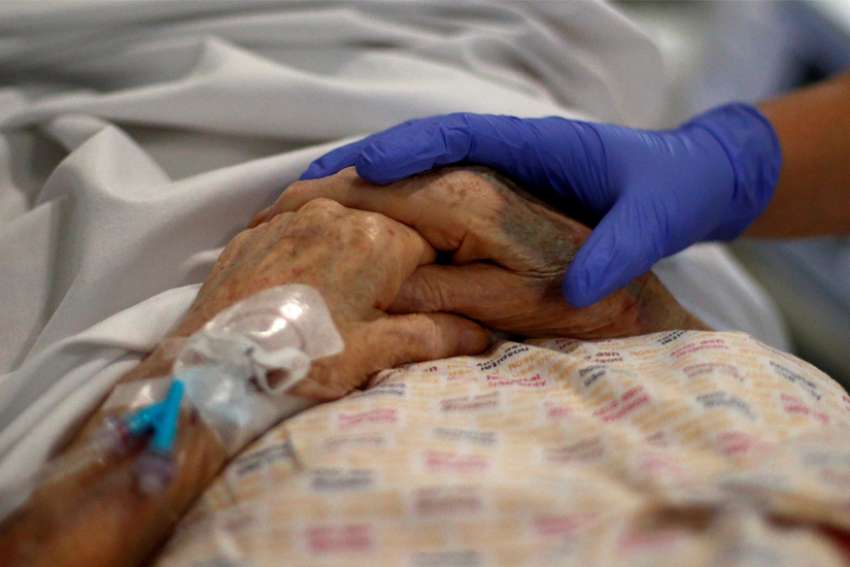In his message for the World Day of the Sick on Feb. 11, Pope Francis highlights the tireless efforts of caregivers and health-care providers who have filled the gaps in delivering holistic care and ultimately saving lives.
“A silent multitude of men and women, they chose not to look the other way but to share the suffering of patients, whom they saw as neighbours and members of our one human family,” said the Pope.
Fr. Xavier De Pinto of Precious Blood Parish in Scarborough has continued to minister to the sick while respecting the safety and restrictions imposed by the pandemic. He continues to find ways to meet the needs of ill parishioners, including administering the Sacrament of the Sick.
“I used to do a healing Mass once a month until (the pandemic) started,” said De Pinto. “We used to do it in the morning and evening and people would come to receive the Sacrament of the Sick because let’s face it, whether it’s mental or physical, we all need it.
“Of course, as a parish priest, I have been called to the houses of people who are close to death. I still do go on those visits except, because I can’t touch them, I use a cotton ball now to anoint.”
Flexibility, De Pinto says, has been the name of the game as he and other priests work to navigate the call to service within health restrictions. He knows of priests who have made various accommodations to continue their ministry under the circumstances, including offering the sacraments through the glass windows of long-term care facilities.
It’s been challenging to navigate through the ever-changing protocols as a result of the ups downs in overall case numbers and the impact of new and potentially more infectious variants of the virus. As priests, De Pinto said, they have had to work extra hard to provide emotional support and encouragement to each other while navigating these challenging times.
“We didn’t get this manual in the seminary,” said De Pinto. “We have virtual meetings with our local bishop which have been great. (Cardinal Thomas Collins) has been very good. He has been reaching out to us and holding Zoom meetings with us and things like that. We just roll with the punches.”
There is some concern that fears around contracting COVID-19 might be preventing some suffering from illness from seeking the spiritual or medical help they need. Oncologist Dr. Rania Lingas at Toronto’s St. Joseph’s Health Centre says early in the pandemic there were concerns around an influx of seriously ill cancer patients not seeking treatment due to fears about contracting the virus in a hospital setting. Staff also had their own safety concerns. However, with strict protocol in place and greater awareness about transmission, there has been a lot less concern among them.
“I think in the beginning, most of us were much more fearful, not knowing what to expect as we were hearing cases from abroad that were so horrific,” said Lingas. “As time went on and we were using proper PPE, the more we knew, I think the less fearful we became. I’m not fearful right now compared to what I was in March.”
The biggest change, Lingas says, has been the decrease in support to patients in hospital due to restrictions to the number of people allowed into the building. Patients unable to invite a support person may find themselves receiving a difficult diagnosis alone. Accommodations are made in cases where there are mobility issues and language barriers and patients are welcome to invite a loved one into their appointment via phone. The loss, however, of volunteer workers and access to community programs and personal networks in some cases have made battling illness all the more difficult.
“We used to have volunteers in the clinic that would help with patients, whether it’s wheeling them downstairs to the taxi or helping us out in the clinic, and we no longer have them,” said Lingas. “I know that there’s a lot of volunteer services in people’s homes that used to be available, whether it was nanny services or transportation services, and those are no longer available for patients. I think some patients also feel that they’ve lost support outside of the hospital. Whether it’s being able to call their family to help with their child care or help them with something else, sometimes they feel that they can’t reach out because of the risk.”


